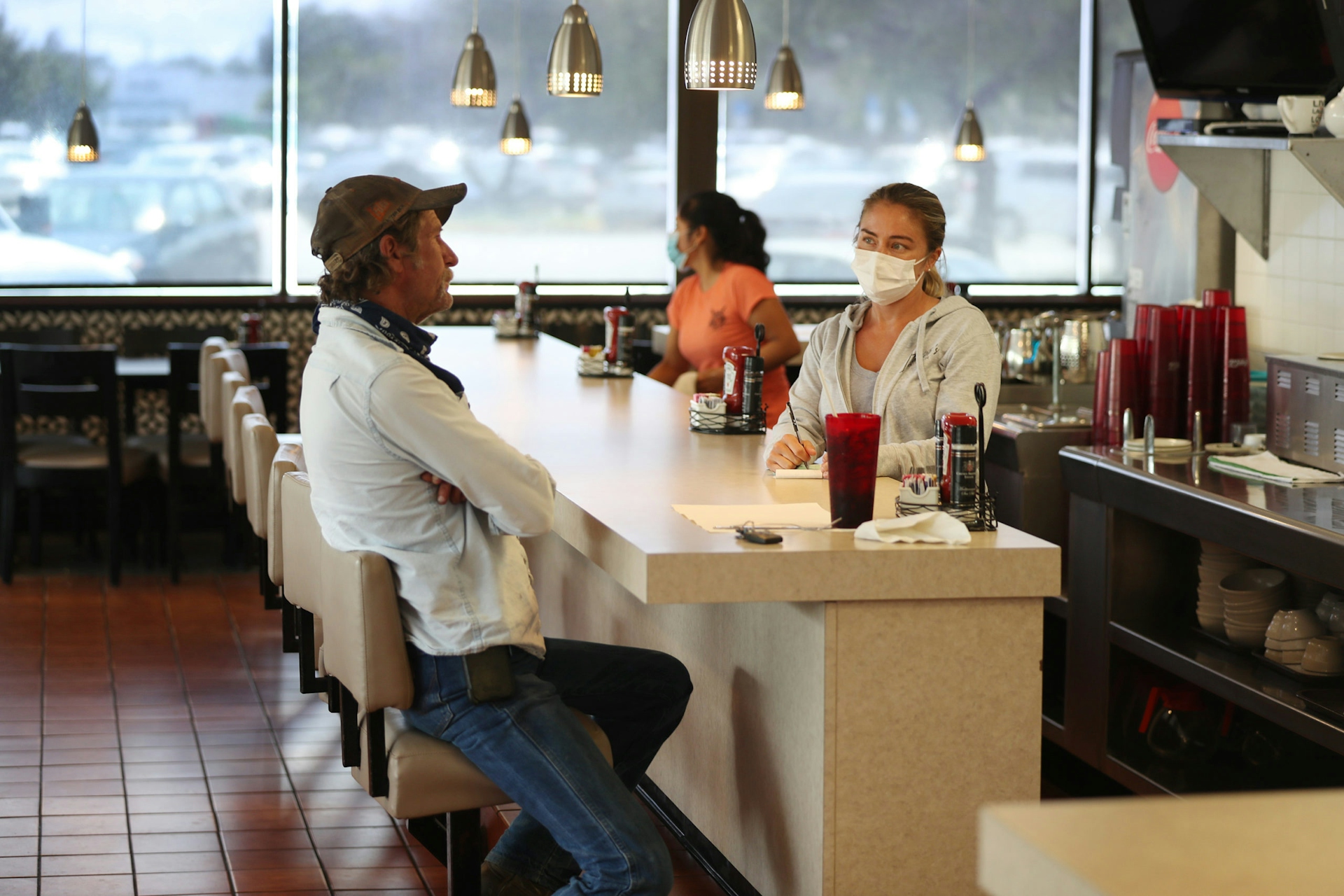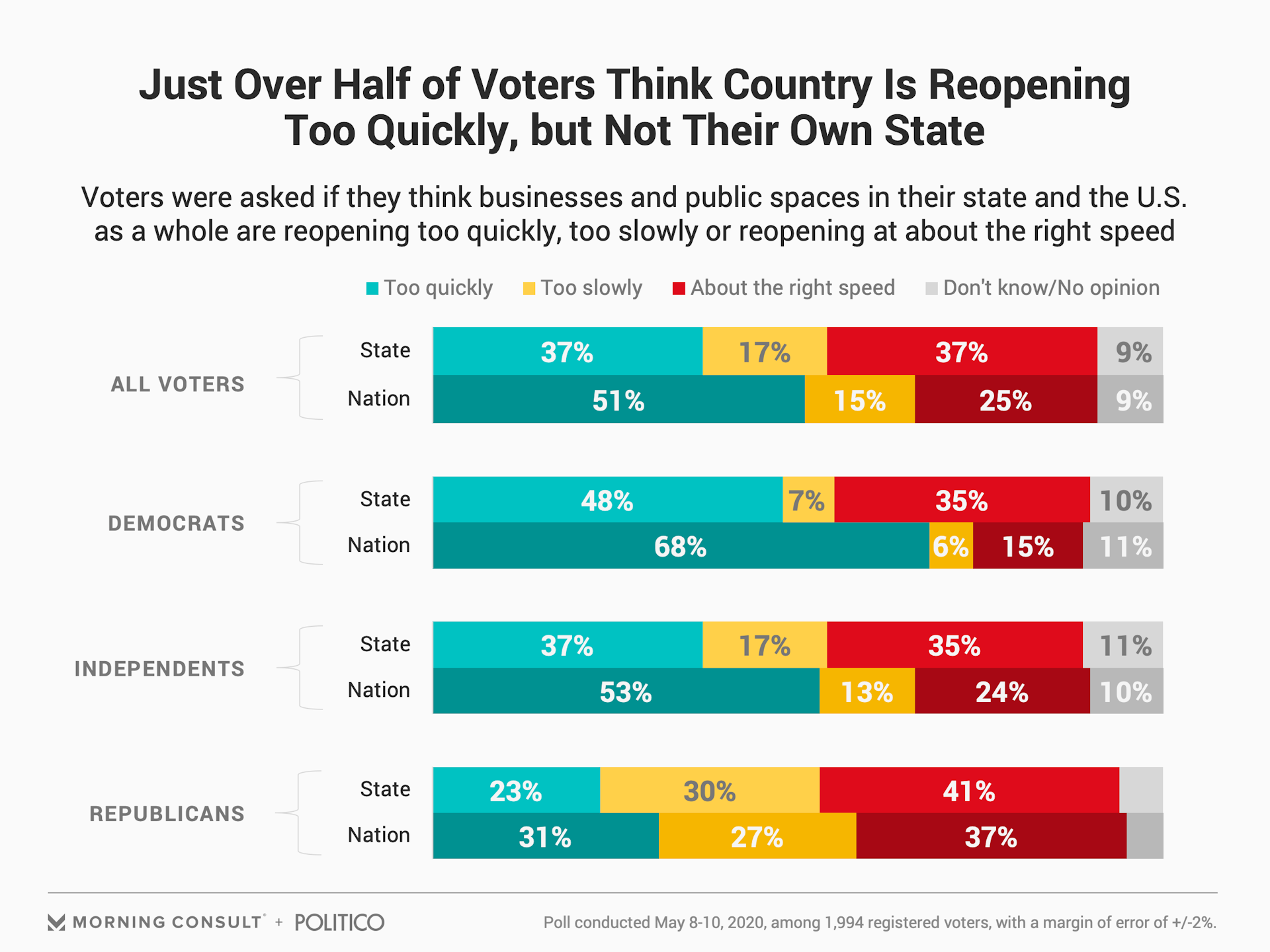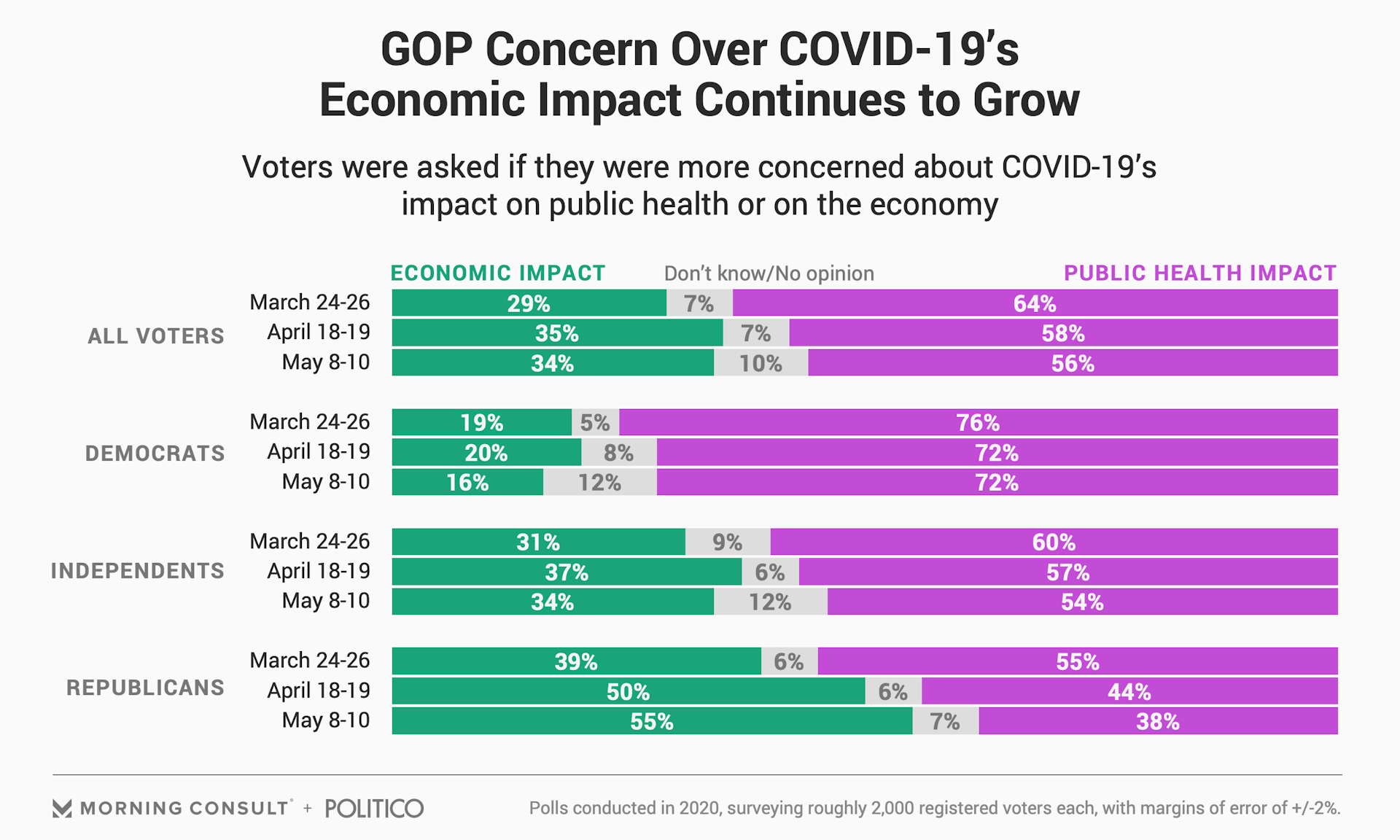Half of Voters Say U.S. Is Moving Too Quickly to Reopen Economy

Key Takeaways
51% of voters say the country as a whole is moving too fast to reopen businesses and public spaces.
Equal shares of voters (37%) say their own state is moving too quickly or at about the right speed.
For the first time, a slim majority of GOP voters say they are more concerned about pandemic’s economic impact than public health impact.
Early efforts by state and federal leaders to reopen their economies have received support from some, like President Donald Trump, and scrutiny from others, such as infectious disease expert Anthony Fauci, who warned at a Senate hearing Tuesday that returning to pre-pandemic life too soon could lead to dire consequences.
New Morning Consult/Politico data shows that just over half of voters think the United States as a whole is moving too fast to reopen amid the pandemic, while views on their own state’s response are more divided.
But for the first time since Morning Consult began tracking public sentiment on the issue, a majority of Republicans say that they are more concerned about the pandemic’s impact on the economy than on public health and that the government should focus more on the economy instead of stopping the coronavirus outbreak.

In the poll conducted May 8-10, 51 percent of voters said businesses and public spaces are reopening “too quickly” when thinking about the country as a whole, with 25 percent saying the pace is “about the right speed” and 15 percent responding that the efforts are moving along “too slowly.”
A majority of Democrats (68 percent) and a little over half of independents (53 percent) said the United States is moving too quickly to reopen businesses and public spaces. Republicans were more split on their views of the nationwide effort, with 31 percent saying it’s going too quickly, 27 percent responding that it’s moving too slowly and 37 percent thinking it’s at about the right speed.
The survey was conducted among 1,994 registered voters and has a margin of error of 2 percentage points.
The decision to reopen economies has mostly fallen to governors after the Trump administration allowed its social distancing guidelines to expire April 30, with the president saying at the time that many states already had their own measures in place. So far, there hasn’t been a uniform approach to how states have approached reopening businesses and public spaces. In the South, Georgia and Florida have reopened several businesses considered nonessential and public spaces such as beaches, while in the Northeast, Pennsylvania has begun reopening public spaces, including some state parks and golf courses, but has decided to lift stay-at-home orders on a county-by-county basis.
Voters’ sentiments about their own state’s reopening plans are more split compared to their views on the nation’s effort as a whole. Equal shares of voters (37 percent) said their own state is moving too quickly or about the right speed in reopening businesses and public spaces, with 17 percent saying the process is going too slowly. A 48 percent plurality of Democrats said their own state is moving too quickly to reopen, while a plurality of Republicans, at 41 percent, said their state is moving at about the right speed.
Part of the struggle that government and health officials have faced in moving to reopen is striking a balance between supporting the economy and safeguarding public health. Fauci, the director of the National Institute of Allergy and Infectious Diseases, testified during a Senate Health, Education, Labor and Pensions Committee hearing Tuesday that reopening the country too early could lead to an increase in cases and deaths over the coming months.

According to Morning Consult data, a majority of voters have generally been more concerned about the public health impact of COVID-19 than its economic impact since the question was first asked in a March 24-26 poll. In the latest survey, 56 percent of voters said they are more concerned about the pandemic’s impact on public health compared to 34 percent who said the economic impact. Voter concern for public health has dropped 8 points since the March poll.
Roughly three-quarters of Democrats have been concerned about the public health impact of the coronavirus since late March. In late March, Republicans were more concerned about the public health impact than the economic toll from COVID-19 (55 percent versus 39 percent, respectively), but in the new survey, those numbers have virtually flipped, with 55 percent being concerned about the economy compared to 38 percent saying the same about public health. This is the first time a majority of GOP voters expressed this sentiment since Morning Consult began tracking the question in late March.
The public still continues to want the government to prioritize containing the coronavirus outbreak, with 6 in 10 voters saying it is more important for the government to address COVID-19’s spread versus 3 in 10 who said the economy was more important. Majorities of Democrats and independents said the government should prioritize COVID-19, while a slim majority of Republicans cited the economy, also for the first time since Morning Consult began asking the question in late March.
Brian Yermal previously worked at Morning Consult as a research editor on the Industry Intelligence team.
Related content

As Yoon Visits White House, Public Opinion Headwinds Are Swirling at Home

The Salience of Abortion Rights, Which Helped Democrats Mightily in 2022, Has Started to Fade
